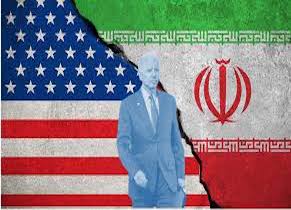
As the conclusion of the US presidential election slated for next week approaches, debates and questions are still being raised about the Democratic Party’s foreign policy in the event Biden ends up heading to the White House, especially with regard to the Arab region.
Biden’s presidential campaign published several statements on its foreign policy, clearly pointing to the necessity of returning to the nuke deal signed with Iran after making some amends to it, which address the previous shortcomings. However, these statements did not outline the strategy for getting to the deal nor explain how signing off on the JCPOA would address the related issues.
However, the political advisers of Biden’s presidential campaign had given a great deal of thought to these questions over the past two years as some of them have been working in different research centres advising various members of Congress. This enabled them to communicate directly with Iranian and Russian academics and come up with different ideas for implementing their plans. Both the Democrats and Republicans in recent years have looked at the Middle East region from an Iran-focused perspective, because Iran poses a threat to the stability of the entire region.
The Obama administration had tried to appease the Iranians via the nuclear deal and lifting of sanctions, despite Tehran’s hostile policy in Syria, Lebanon and Yemen in the hopes the Iranians would seize the opportunity available for them.
The Iranians hoped that Hillary Clinton would win the 2016 presidential elections for the Obama administration policy to continue. They have used all the diplomatic channels at hand to create an impression that Iran emerged that it is a greater superpower than the US, in spite of its obvious economic and conventional military weaknesses.
The Trump administration had reversed the policies of the Obama administration. To the Trump White House and leading Iran hawks in the Senate, Iran embodies the absolute evil and should be held accountable. Thus, the Trump administration pulled out of the JCPOA and imposed tough sanctions on Iran. Iran’s oil exports declined 90%, with inflation hitting record-breaking levels. With tacit approval from the US, the Israeli jets did not spare the Iranian targets in Syria, Qassem Soleimani was killed, and most of the US detainees in Iran were released without the US paying a political price.
Washington is still prepared to move ahead with this policy until the last day of the Trump presidency. But it is in need of a full presidential term to reach the desired results if it uses all the elements of power it has at hand without having to go through cumbersome diplomatic channels.
The Democrats have been monitoring the Trump policy and discovered strengths which they did not dare to pursue in their previous policies. The Europeans, despite their anger at the US sanctions and the pullout from the nuke deal, could not do much to deter or undermine the Trump policy.
The Iranians did not retaliate against the killing of Qassem Soleimani at the scale that they and their apologists in the West had consistently threatened. The Russians and the Assad regime failed to stop the Israeli bombing of the Iranian positions in Syria.
Hence, the Democrats may have reached the conclusion that the best policy to deal with Iran is to pursue a combination of the Obama and Trump policies and develop a mechanism for dealing and negotiations with Iran in a way that achieves stability in the region via merging the serious diplomacy with the strength of sanctions and military through:
First: A direct Iranian-US negotiation on the nuke deal and the way to develop and amend it according to the current realities and demands, not the reinstatement of the 2015 nuke deal. This shall be consistent with keeping in place the counterterrorism sanctions while lifting them gradually, especially for medical and humanitarian considerations. However, Iran should first prove its serious commitment to the diplomatic path before lifting the nuclear sanctions.
Second: Pushing for a direct Iranian negotiation with the Gulf states with an evident US and Western support for the GCC countries without the Western countries’ participation in the negotiations to resolve the outstanding problems between Tehran and the Gulf states.
The confidence-building measures between the two sides could begin with simple measures such as stopping the media attacks, allowing the Iranians to perform pilgrimage according to the applicable laws and regulations, facilitating the travels for Shiite Arabs to Iran or Iraq and issuing a joint statement which includes respect to the internal affairs of each state and non-interference in them in the hopes that this shall lead in the short term to ceasing the armed conflicts in Yemen, Syria and Iraq, facilitate delivery of humanitarian assistance to the areas of conflicts and ceasing the firing of missiles at the Gulf states.
The third prong: An international meeting in which Iran, the EU, the Gulf states and the US participate to discuss the political and economic stability in the region in general and to give an international cover for the two axes to appease Iran politically and bring it back to the international community and, simultaneously, holding it to its word for any positive outcomes after the meetings. The lifting of US sanctions will go side by side with developing the political process and achieving tangible results on the ground, especially in Syria and Yemen, where the international decisions should be implemented without delay.
These three axes come in conjunction with the continued US troop pullback from the Arab region gradually independently of the progress in talks. This issue is related to the US turning to the East, which was initiated by President Obama and the electoral promises by the two parties to bring back the US troops home and reduce spending in light of the tough economic situation through which the US is going.
In the meantime, the Democrats continued communication with the Russian academics to know the measures that could be implemented regarding the Syrian tragedy. It was clear for the two parties that the biggest aspect of the issue is related to the reconstruction, its conditions and those who fund it.
Despite the divergent views of the two sides on the future role of the Assad regime, they agree that the regime, in its current structure, is unacceptable and no cooperation or dealings could be enforced with it. There should be serious political measures taken by the regime to reassure the international community, which begin with issues like the chemical weapons, the facilitation of the return of those displaced, curbing the security crackdown, revealing the fate of the detainees, and facilitating the work of the constitutional committee to achieve genuine outcomes.
The Democrats believe that their communication with Iran will facilitate their work with the Russians to find a solution to the Syrian crisis. To the Democrats, Iran is not the enemy that should be driven out of Syria.
In case they win, it remains unknown whether the Democrats will be able to implement any of these ideas. But one would hope they surely will never cede for free the sanctions imposed by the Trump administration.
By Bassam Barabandi
Bassam Barabandi is a former Syrian diplomat and the co-founder and director of external relations of People Demand Change. Born in Damascus City with familial ties to Deir Ez-Zor Province, Syria, Bassam worked in the diplomatic civil service of the Syrian government for 14 years before leaving the Syrian Embassy in Washington DC in the summer of 2013 and co-founding People Demand Change Inc. Bassam tweets under @Bassamva





Im flustered because were doing IUI this month and Ive been sorta delaying us BD thinking Im gonna wake up and have a opk and I want him to have a awesome supply for the IUI safe place to buy cialis online Keep in mind that it is not always an indication of cancer
007; 95 Confidence Interval CI 1 cialis generic online Frances, USA 2022 06 17 18 02 07